Public’s UFO obsession has experts, others sorting what’s fact, what’s fiction
The stories of flying saucers, little green men, and contact with beings from across the cosmos have fascinated the public for centuries as people have wondered what’s beyond our skies.
But over the last few decades, as science and mass media have expanded, the obsession with unidentified flying objects and possible extraterrestrial life has exploded.
From the fun, such as sightseeing tours of supposed UFO activity hotspots like Roswell, New Mexico, to the serious, with last year’s tense congressional hearings on the subject, a lot of money, resources and time has been spent answering the question: “Are we alone?”
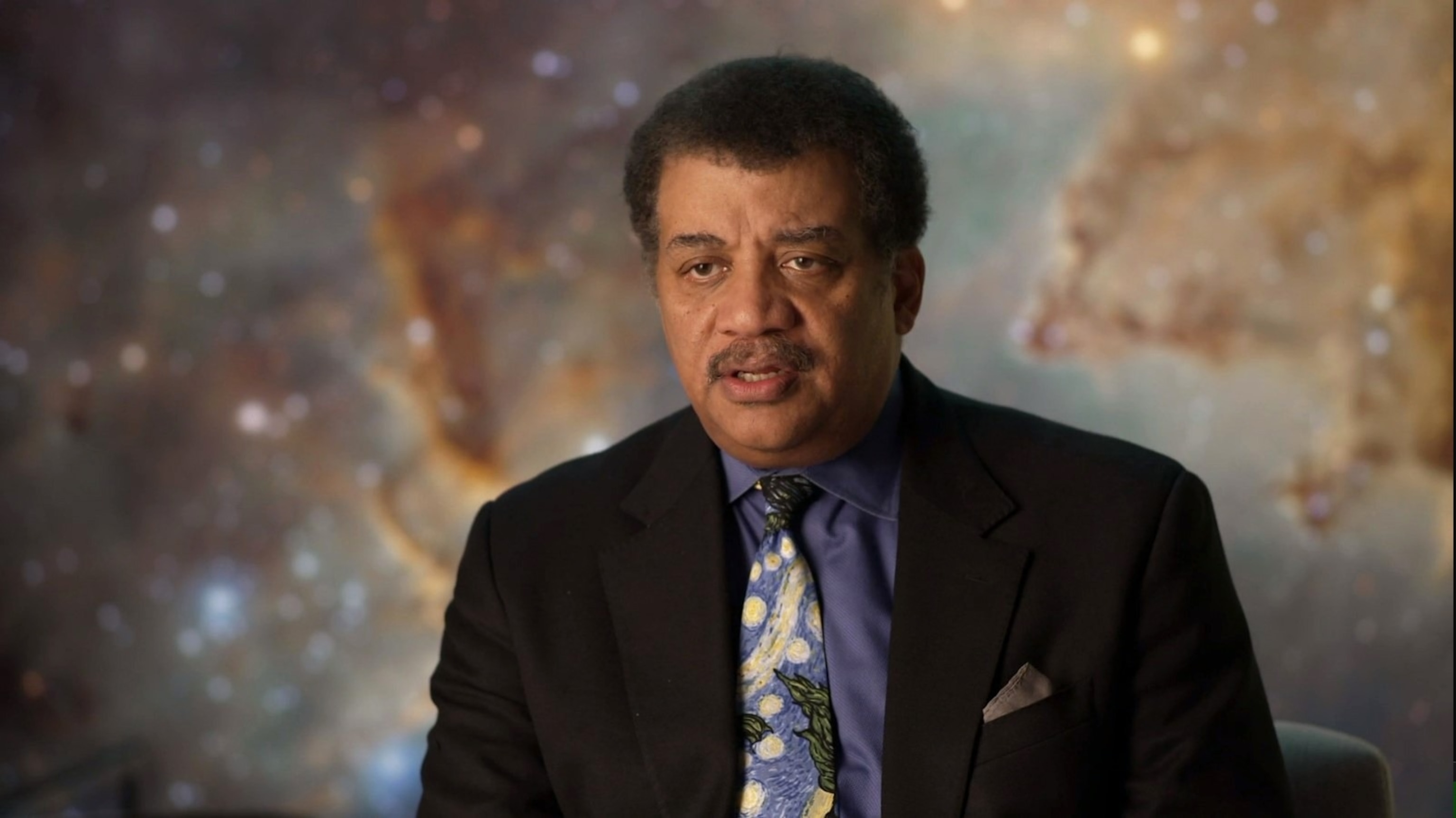
Neil deGrasse Tyson speaks with “Impact x Nightline.”
ABC News
“There are people who will see things that are explainable, but they can’t explain it. So to them, it’s unidentified. Fine. Well, let’s investigate it,” famed astrophysicist Neil deGrasse Tyson told “Impact x Nightline.”
An episode of “Impact x Nightline” now streaming on Hulu takes a look at the cultural phenomenon behind UFOs and features interviews with scientists, UFO enthusiasts and people who claimed to have been abducted by aliens.
Margaret Weitekamp, the department chair of the National Air and Space Museum, told “Impact” that the phenomenon behind UFOs began in the 1940s and 1950s with the public obsession over flying saucers.
Arguably the most famous incident took place in the summer of 1947 when a rancher found wreckage, including metallic-looking scraps, on his property. This was around the same time that the U.S. Air Force began “Project Blue Book,” an initiative to investigate UFO reports.
“What we know is probably that it was a weather balloon incident, but a lot of lore has risen up around that and around especially secure areas in the American West, where people then ask a lot of questions about what’s really happening there,” Weitekamp said.
The reports of the weather balloon did little to quell people’s suspicions, experts said.
Reports of unidentified lights in the sky, aircraft and other unexplained events, particularly in the Southwest, exploded since the 1950s and turned the area into a pop culture phenomenon.
Just outside of Las Vegas lies what many UFO enthusiasts call “The Extraterrestrial Highway,” which features UFO-themed attractions and stores.
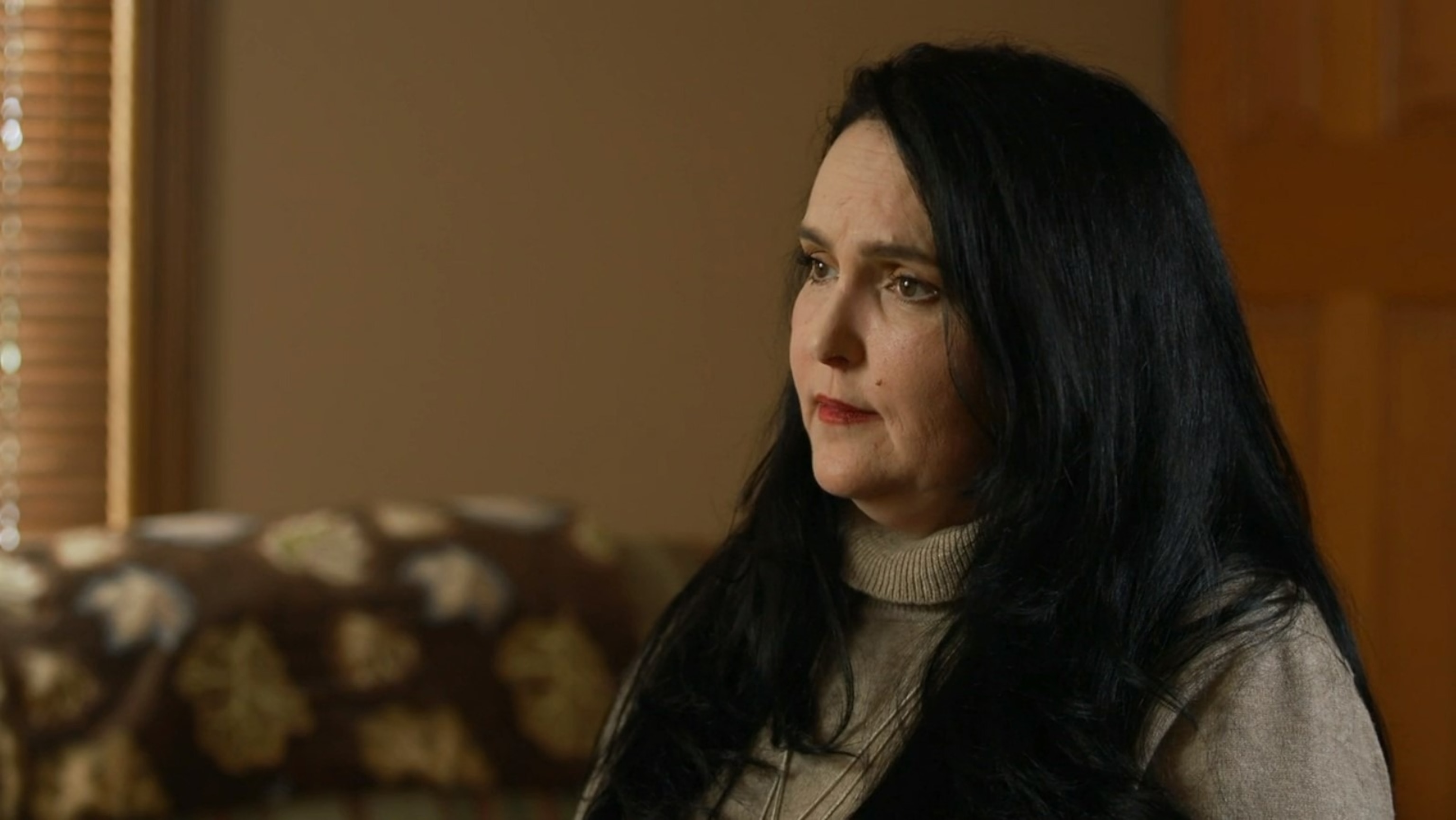
Kat Patterson claims she was abducted by aliens.
ABC News
But some who claimed they had gotten up close and personal with a being from outer space told “Impact” that their lives were forever changed from that fateful encounter.
Kat Patterson told “Impact” that she was abducted by aliens 24 years ago when she and her sister-in-law were driving in a rural area. Patterson said the experience, where she allegedly was put on a metal bed and was given a “pelvic exam” by a group of aliens, traumatized her.
“If you believe me, great. If you don’t, that’s fine, too. You don’t have to,” she said. “I know what happened.”
Avi Loeb, a theoretical physicist at Harvard University’s department of astronomy, told “Impact” that aliens exist “because to think otherwise is arrogant.” However, he said that there is no concrete evidence, yet, to prove extraterrestrial activity on Earth.
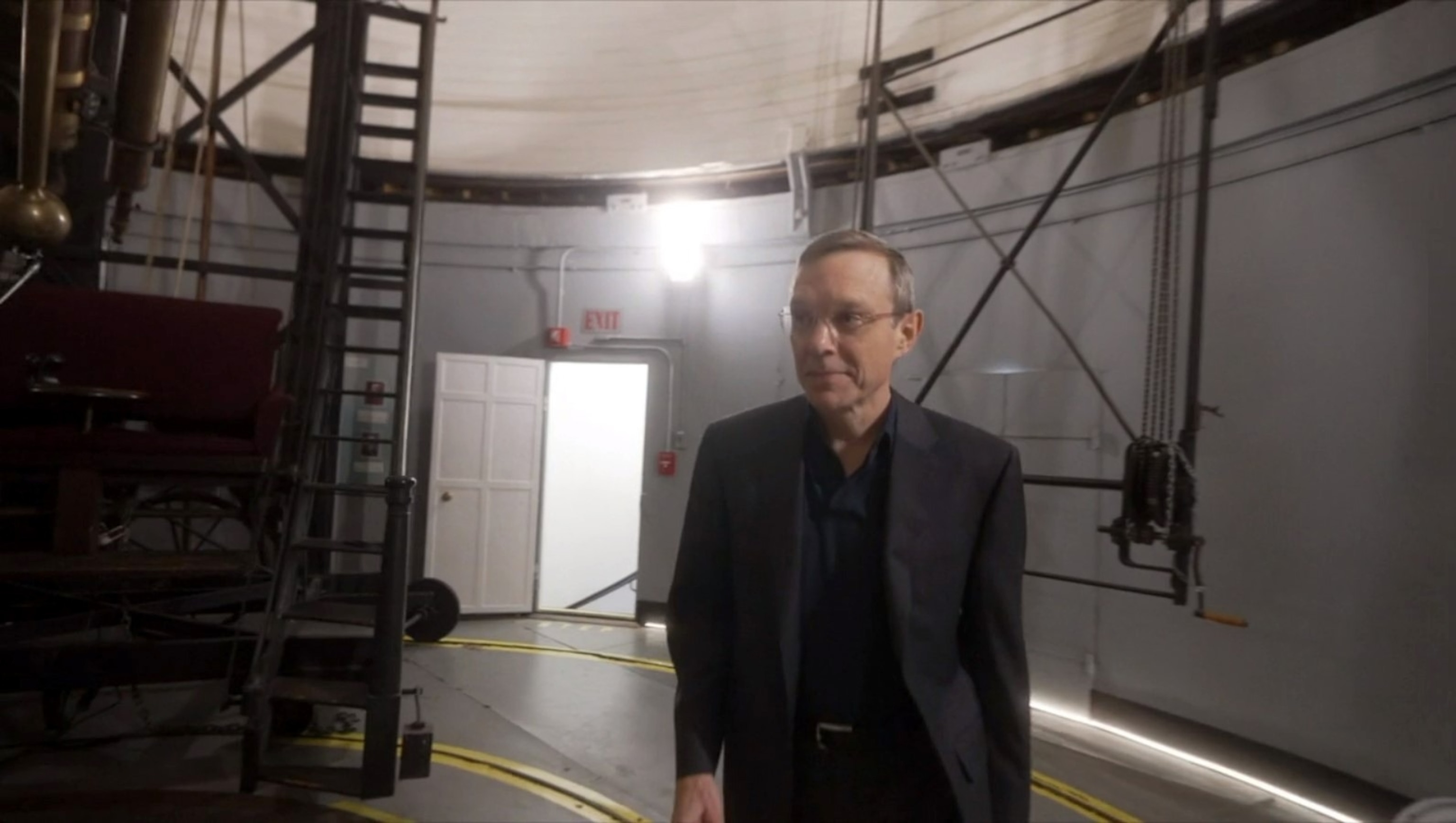
Avi Loeb, a professor of science at Harvard University, has been studying astronomy for years.
ABC News
“Nowadays, there are 10,000 satellites, many of which are communications satellites, and a lot of people mistake them for anomalous objects and there are many drones,” Loeb said.
Still, that hasn’t stopped scientists and the government from pouring billions of dollars over the years into probing the skies.
Two years ago, the Department of Defense created the All-Domain Anomaly Resolution Office, or AARO, to investigate unidentified aerial phenomena.
The agency’s former director, Sean Kirkpatrick, told ABC News that there is no evidence of reports of an intact spacecraft kept by the U.S. government.
However, last July, David Grusch, a member of a previous Pentagon office tasked with investigating unidentified aerial phenomena, or UAPs, gave bombshell testimony to a congressional hearing.
Grusch spoke of the unconfirmed existence of a secret UFO recovery program sanctioned by the government and claimed that the UAPs were may be capable of probing our activities.
Kirkpatrick dismissed Grusch’s testimony in a statement published on his personal LinkedIn page released shortly after the hearing.
The Pentagon last year also said it had investigated over 650 UAP incidents and found there was no evidence that any of them were of extraterrestrial origin.
Weitekamp noted that Grusch’s testimony had very little new scientific information.
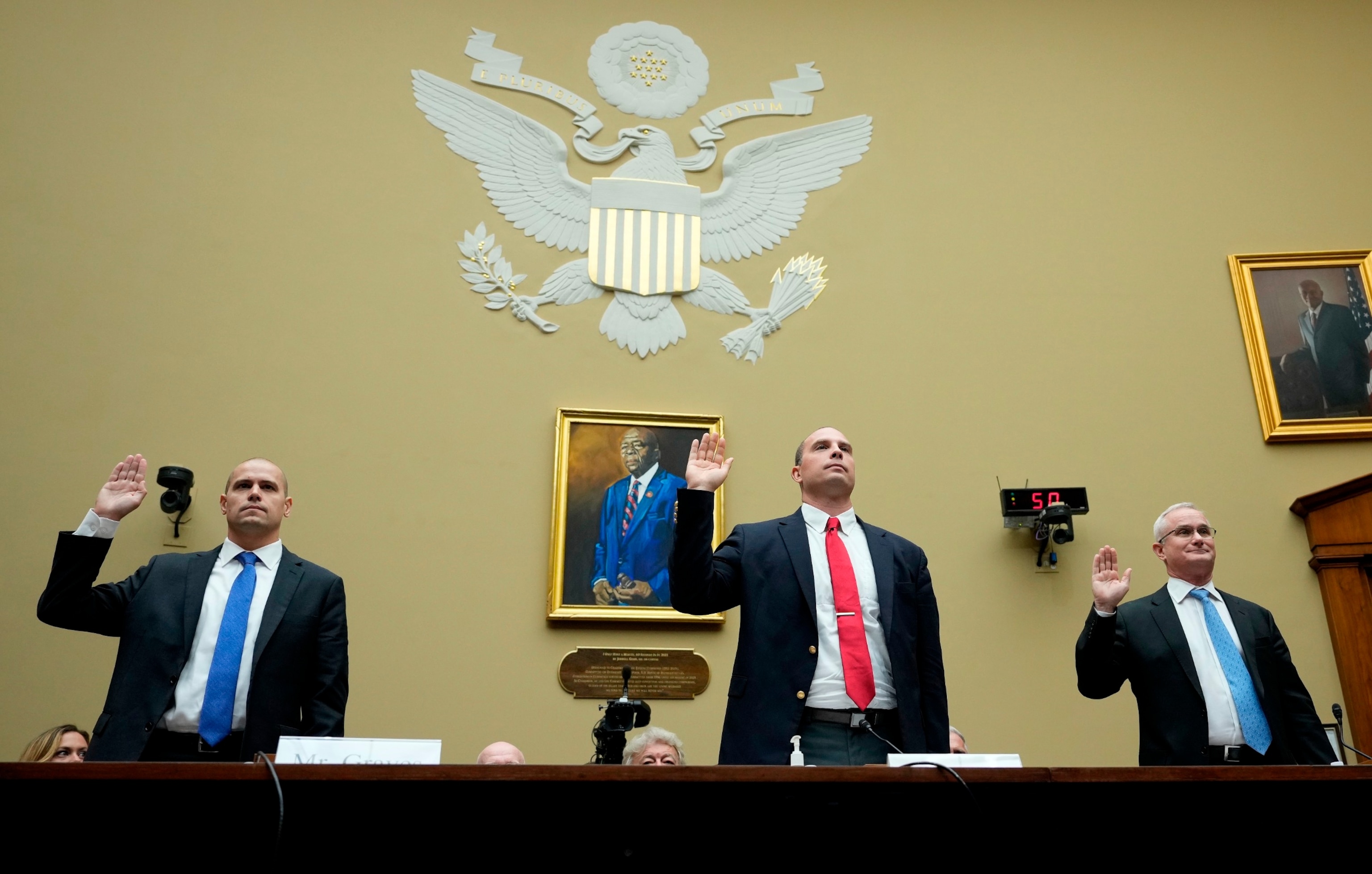
Ryan Graves, executive director of Americans for Safe Aerospace, David Grusch, former National Reconnaissance Officer Representative of Unidentified Anomalous Phenomena Task Force at the U.S. Department of Defense, and Retired Navy Commander David Fravor are sworn-in during a House Oversight Committee hearing titled “Unidentified Anomalous Phenomena: Implications on National Security, Public Safety, and Government Transparency” on Capitol Hill 26, 2023 in Washington, DC.
Drew Angerer/Getty Images
“So when Congress is holding hearings investigating the questions of unidentified aerial phenomenon, those are really questions about national security, questions about overflight, not so much about something overflying in space,” she said.
Outside of the government, civilians have banded to try and answer the questions about the unknown themselves.
When “Project Blue Book,” terminated in 1969, the Mutual UFO Network, or MUFON, formed to independently continue the government’s work. The nonprofit has members across the globe from all walks of life, and conducts research, lobbies the government, and investigates sightings.
Once a year MUFON puts on a three-day field investigator boot camp preparing newcomers to join their ranks in proving or disproving mysterious phenomena.
“They’re learning advanced interviewing techniques. They’re learning astronomy, among other subjects that are just going to help them in their work,” Stacey Wright, the head of the Arizona MUFON chapter, told “Impact.”
Wright said MUFON can positively classify about 95% of the reports they investigate, “whether it’s a naturally occurring thing in the environment, whether it’s a conventional aircraft that people are seeing, [or] something floating in the sky as simple as mylar balloons.”
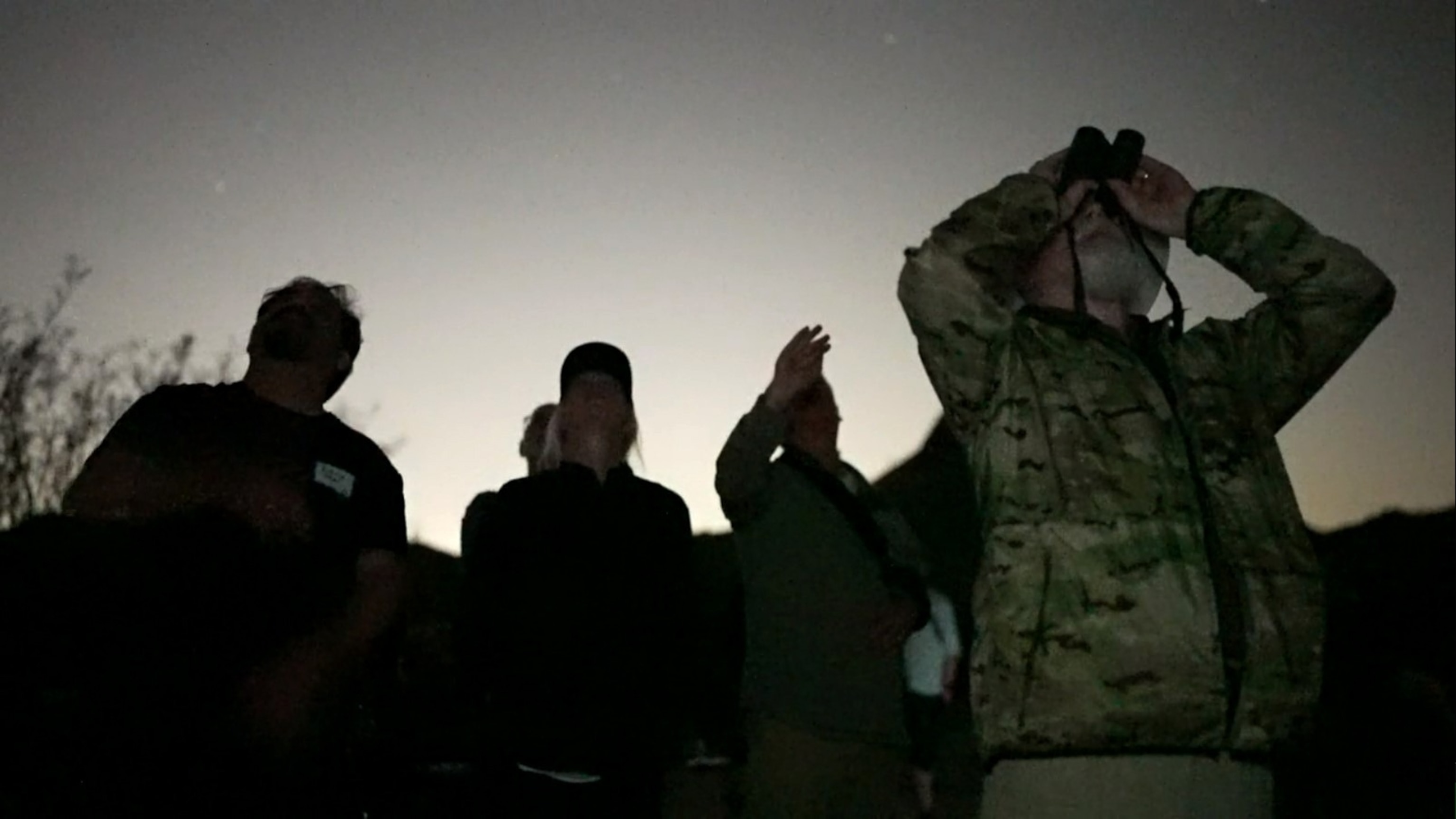
Members of the Arizona MUFON gaze into the night sky for any signs of unusual activity.
ABC News
And while some of those inquiries about UFOs may not lead to major scientific revelations of extraterrestrial life, scientists said it is important to continue the research and follow the facts.
“If the day arises where they capture one of these things and they find there are aliens in it, that’s cool. I’ll rejoice. Finally, we found some aliens. But until that day happens, all we can do is collect data,” Neil deGrasse Tyson said.


